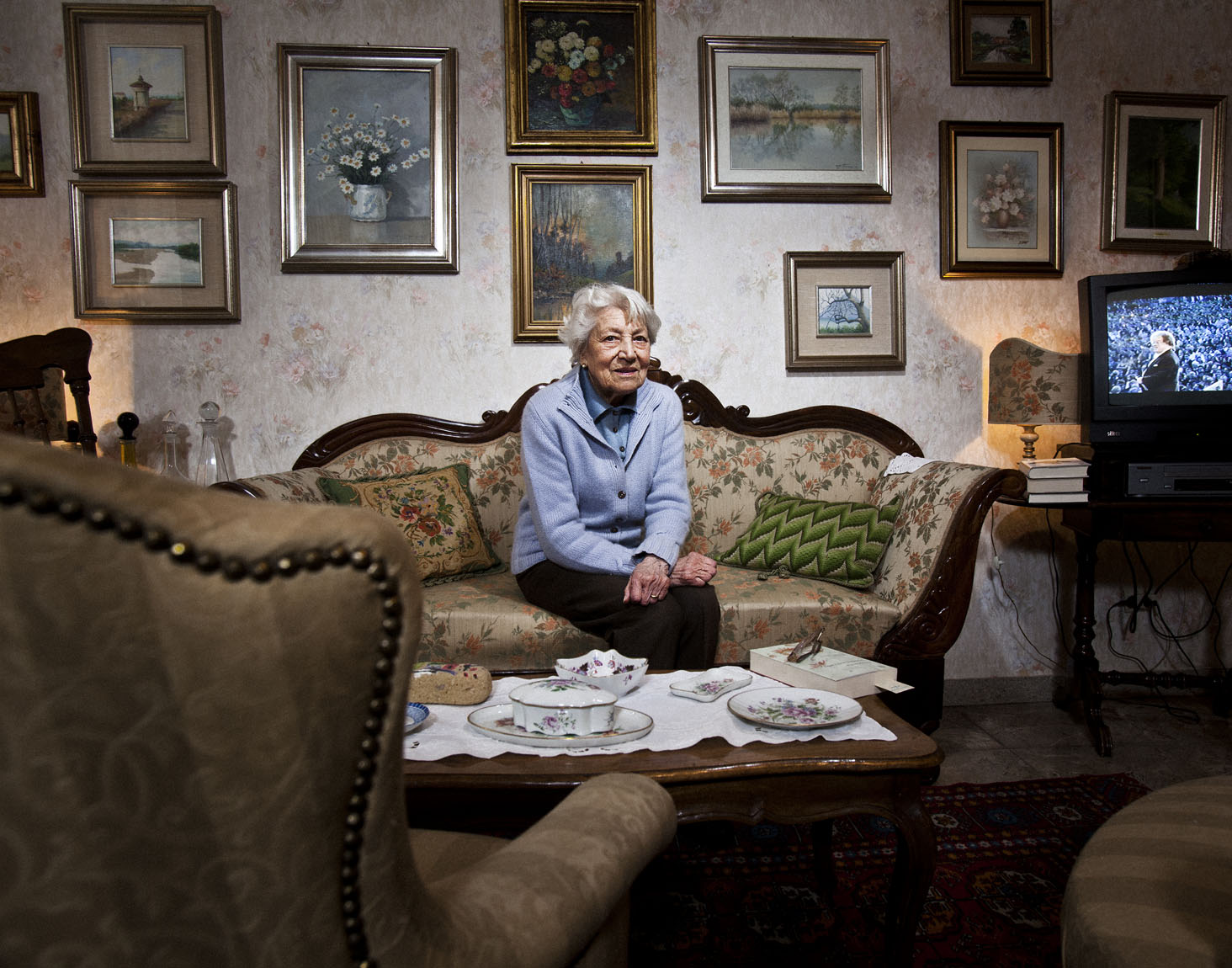My father moved to Argentina in 1915, during the First World War, but he decided to return and enlist. He became a hero, because the army was fleeing after a defeat and forgot a cannon on the field. During the night, my father went back alone to retrieve the cannon with a cart. He was shot between the ribs. This gave him asthma. And when the Germans came to our door during the Second World War, my father went downstairs and they took him. We thought we would never see him again. The Germans thought he was a partisan, then they determined that because of his asthma he could never be an active partisan - though he might be someone who aided the partisans.
From 1943 to 1945, we were basically between a rock and a hard place. We feared the Germans would lose the war. The partisans had become stronger.
Two young partisans, who were friends of mine, were discovered by Germans and displayed in the square, hung from meat hooks, left to rot in the open air. By then, it had become a common opinion that the Germans were now an enemy. And the partisans were just as out of control. They started stealing food and robbing people. They were an armed political party, which you couldn't fight back against.
When the war ended on April 25, on Liberation Day, I was headed to work. I met a man who was a fascist and he asked me why I was going to work. He told me not to go to work. "Today is a special day," he said. "Nothing is going to happen." There were a lot of people gathered in the town square. The partisans were able to come out of hiding. They gathered twenty people they suspected of being fascists and put them in trucks and took them to the woods and shot them. I knew a girl that owned a hotel. The Germans had occupied it during the war. The partisans decided she was a spy, though she only owned the hotel, and they killed her. After killing those fascist men, the partisans displayed their wives in the square with shaved heads. But this ended when it began to storm and everyone scattered. Eventually, with the war over, the curfews ended and there were parties in the stables.
During the first election following the war, I worked as a telephone operator. I aided old people with voting from their homes. The election was basically between the Republic and the Monarchy. I was for the Monarchy but they lost.
I met my husband in 1947. He had escaped from his military headquarters after the war, and stole civilian clothes from a window. When I asked what he wanted to do for our honeymoon, he said he wanted to go to Venice so he could return the clothes that saved his life. So we did that.
After that, I worked in a government office for nine years. Then I worked for a shoemaker. My husband died in 1961. Everyone that came back from Russia seemed to die young.
